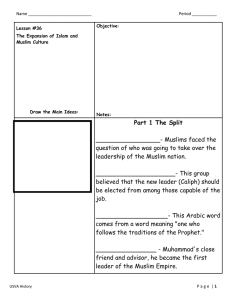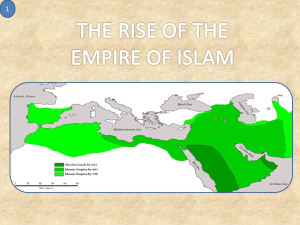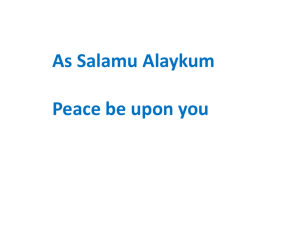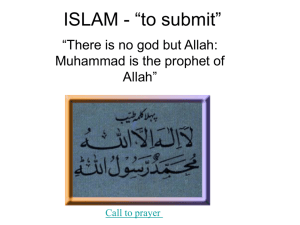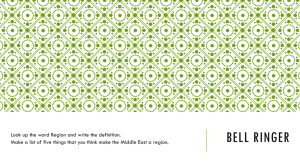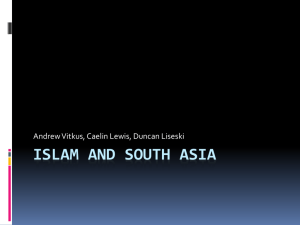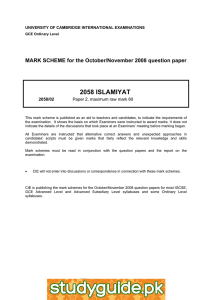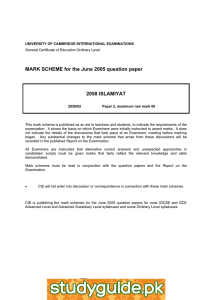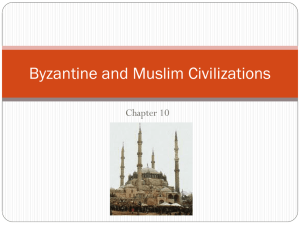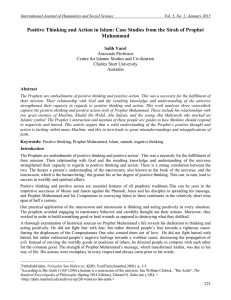Islam glossary
advertisement
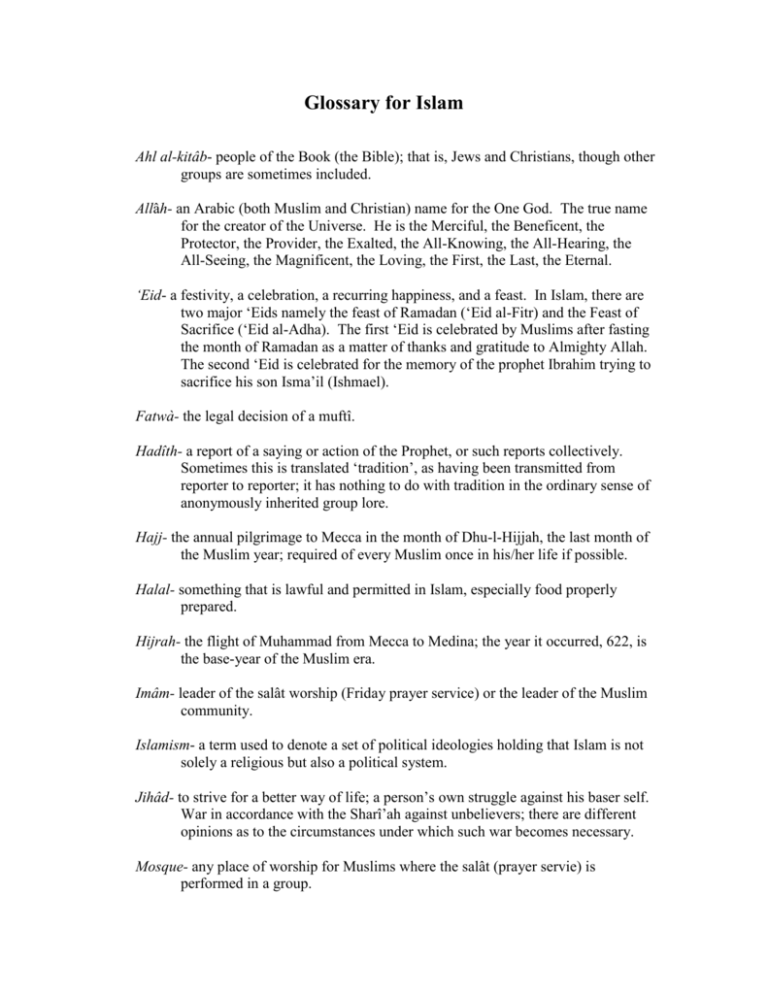
Glossary for Islam Ahl al-kitâb- people of the Book (the Bible); that is, Jews and Christians, though other groups are sometimes included. Allâh- an Arabic (both Muslim and Christian) name for the One God. The true name for the creator of the Universe. He is the Merciful, the Beneficent, the Protector, the Provider, the Exalted, the All-Knowing, the All-Hearing, the All-Seeing, the Magnificent, the Loving, the First, the Last, the Eternal. ‘Eid- a festivity, a celebration, a recurring happiness, and a feast. In Islam, there are two major ‘Eids namely the feast of Ramadan (‘Eid al-Fitr) and the Feast of Sacrifice (‘Eid al-Adha). The first ‘Eid is celebrated by Muslims after fasting the month of Ramadan as a matter of thanks and gratitude to Almighty Allah. The second ‘Eid is celebrated for the memory of the prophet Ibrahim trying to sacrifice his son Isma’il (Ishmael). Fatwà- the legal decision of a muftî. Hadîth- a report of a saying or action of the Prophet, or such reports collectively. Sometimes this is translated ‘tradition’, as having been transmitted from reporter to reporter; it has nothing to do with tradition in the ordinary sense of anonymously inherited group lore. Hajj- the annual pilgrimage to Mecca in the month of Dhu-l-Hijjah, the last month of the Muslim year; required of every Muslim once in his/her life if possible. Halal- something that is lawful and permitted in Islam, especially food properly prepared. Hijrah- the flight of Muhammad from Mecca to Medina; the year it occurred, 622, is the base-year of the Muslim era. Imâm- leader of the salât worship (Friday prayer service) or the leader of the Muslim community. Islamism- a term used to denote a set of political ideologies holding that Islam is not solely a religious but also a political system. Jihâd- to strive for a better way of life; a person’s own struggle against his baser self. War in accordance with the Sharî’ah against unbelievers; there are different opinions as to the circumstances under which such war becomes necessary. Mosque- any place of worship for Muslims where the salât (prayer servie) is performed in a group. Muftî- an expert in the Sharî’ah who gives public decisions in cases of law and conscience. Qur’an- the Holy Book of Islam; the highest and most authentic authority in Islam. Sacred writings revealed to the prophet Muhammad during his life at Mecca and Medina. It is divided into 114 suras (chapters). Ramadan- Islamic holy month of fasting. During the month, between sunrise and sunset all adult Muslims are required to abstain from eating, drinking, smoking and sexual relations. Among other things this helps them to develop self-control. Salât (or salâh)- the ritual worship performed five times daily, preferably in groups; including the special group prayer of midday on Fridays. Shahâdah- the declaration that there is no god but God, and Muhammad is His prophet, identifying the declarer as a Muslim. . Sharî’ah- the whole body of rules guiding the life of a Muslim in law, ethics, and etiquette; sometimes called Sacred Law (or Canon Law). The provisions of the Sharîah are worked out through the discipline of fiqh on the basis of usûl al-fiqh (basic sources of legal authorities), mainly the Qur’an and Hadith. Shî’ah- ‘party (of ‘Alî) general name for those Muslims who hold to the rights of ‘Ali and his descendants to leadership in the community whether recognized by the majority or not; or any particular sect holding this position. Sûfî- an exponent of Sûfism, the commonest term for that aspect of Islam which is based on the mystical life. Sunnah- received custom, particularly that associated with Muhammad; it is embodied in hadîth. Sunnî- properly ahl al-sunnah wa-l-jamâ’ah (‘people of custom and the community’) That majority of Muslims who accept the authority of the whole first generation of Muslims and the validity of the historical community, in contrast to the Khârijîs and the Shî’îs. Sunnî as an adjective refers to the doctrinal position, as a noun it refers to an adherent of the position. Sunnism is sometimes referred to as ‘Orthodoxy’. Ulamâ- A group of learned men, in particular those learned in Islamic legal and religious studies; plural of ‘âlim, a learned man. Ummah- any people as followers of a certain prophet, in particular the Muslims as forming a community following Muhammad.








